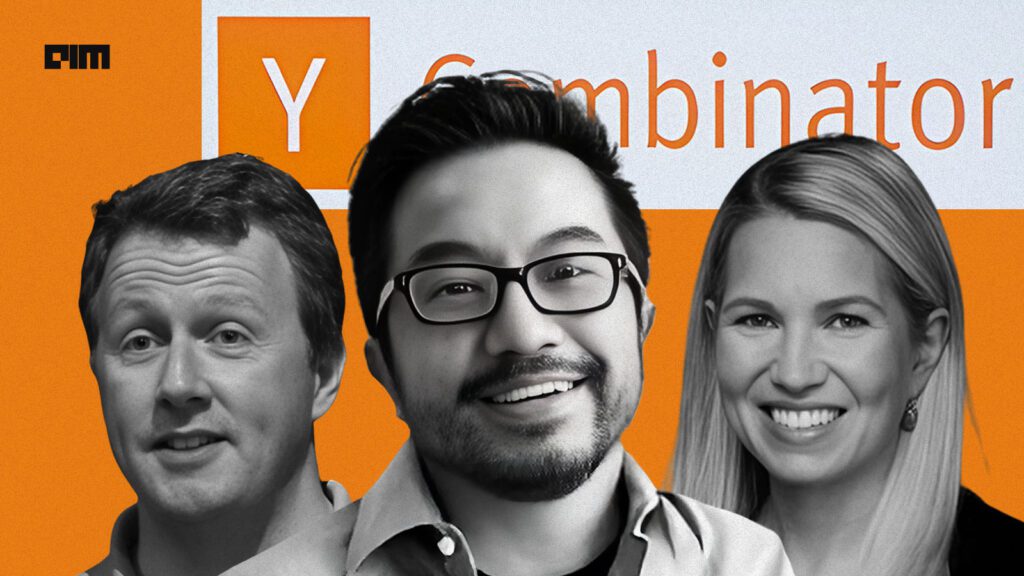San Francisco-based Y Combinator completed its twenty-year anniversary in March this year. What began in 2005 as an experimental idea by Paul Graham, Jessica Livingston, Trevor Blackwell, and Robert Tappan Morris has since evolved into one of the most influential forces in the global startup ecosystem. YC has backed thousands of companies, generating over $800 billion in market value.
Even as it scales—recently expanding to four batches a year from its traditional two—YC still insists on thinking like a startup, echoing Graham’s original vision.
“It still runs on the original belief that a small group of passionate people can truly change the world,” said Kastle CEO Rishi Choudhary, who was part of YC’s summer 2024 batch.
AIM spoke to YC alumni to understand if it still feels like a startup.
“YC does still function very much like a startup, very nimble,” said Vahan.ai CEO Madhav Krishna, who was part of YC’s Summer 2019 batch. “Imagine, to this day, Michael Seibel, a very senior partner, reached out to me and asked for an update. It shows that top leadership is still actively involved with startups.” Notably, Seibel recently announced that he would move into a partner emeritus role.
Floworks co-founder Sudipta Biswas, part of Y Combinator’s Winter 2023 batch, said the programme became quite large in 2020–21, but now feels more like it did before COVID-19.
That scrappiness is a common thread, even as the programme grows. “Partners grabbing pizza and beers with founders, sitting cross-legged on crowded floors, giving tailored, thoughtful advice to each founder,” added Choudhary.

YC’s Shift Towards AI Startups
Under the leadership of its CEO and president, Garry Tan, YC has increasingly become a breeding ground for AI innovation.
Tan has been an advocate for Little Tech, a lobbying operation that fights on behalf of thousands of venture-backed firms competing for a place in the emerging AI economy. He has been vocal about the challenges and opportunities facing startups.
In a recent interview, he said that courtesy of AI, their most recent cohort is growing by 10% each week.
“YC’s fingerprints are all over the AI revolution,” said Choudhary. “Look at voice AI. Nearly every leader in the space is YC-backed. YC has always excelled at spotting founders pursuing ideas that initially seem impossible but eventually reshape entire industries. AI is exactly that kind of story.”
Biswas added that while OpenAI, Google, and years of earlier research in academia were key to starting the AI boom, YC played a role in accelerating it by backing a large number of startups in the space.
The story comes full circle with OpenAI CEO Sam Altman.
Altman was part of YC’s founding cohort in 2005 as the founder of Loopt, a location-based social app, which was acquired later. He later served as the accelerator’s president from 2014 to 2019.
An important yet frequently overlooked element of OpenAI’s history is its connection to YC. OpenAI was originally incubated at YC Research before Elon Musk and Altman chose a different path. The rest is history.
Golden Age to Build
Tan has also spoken about the current time as a golden age to build.
AI’s ability to handle demanding tasks has enabled these companies to operate with smaller teams. He said that around 25% of the current YC startups had 95% of their code written by AI.
“Right now, every SaaS dollar feels up for grabs. We’re thrilled by the opportunity this creates to make consumer lending cheaper, faster, and accessible to everyone, not just incrementally better, but fundamentally different,” Choudhary added.
YC released a list of startup categories they are interested in funding, aimed at addressing challenges in a post-AGI world. These include government software, public safety, US manufacturing with AI and robotics, fintech, LLM chip design, space tech, AI engineering, human-centric jobs, and energy-efficient computing.
Tan’s journey into Y Combinator has been inspiring. He initially volunteered as a photographer at one of their events, and later returned as a founder in one of the cohorts.
Relevance After Two Decades
Although YC inspired a global wave of accelerators, its founders believe it remains just as relevant 20 years after its founding.
CodeAnt AI CEO Amartya Jha, part of YC’s Winter 2024 batch, said YC remains one of the rare places where founders can start with just an idea. It offers access to top mentorship, investors, customers, and, most importantly, a strong community of peer founders.
Y Combinator invests $500,000 in startups, securing a 7% stake with $125,000 and converting the remaining $375,000 into shares in future funding rounds. This gives them a strategic advantage in backing promising startups and participating in their long-term growth.
As discussions around India housing 100 AI unicorns in the next decade continue, it’s interesting to note that investors betting on these startups are increasingly emerging from the far West, with Y Combinator playing a crucial role for many of them.
YC experienced a remarkable 45% rise in applications from India between the Winter 2020 and the Winter 2022 batches.



